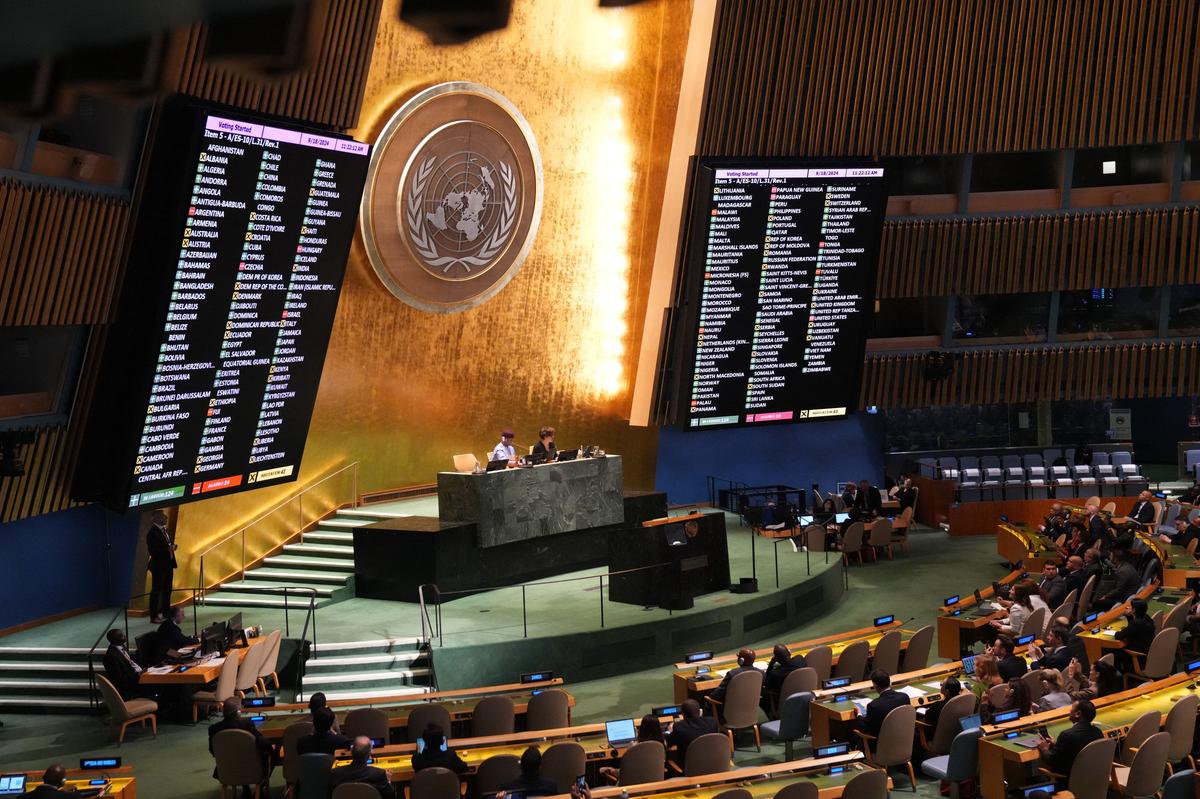India Abstains During Vote on UN Resolution Against Israel's Occupation of Palestinian Territory

India Abstains During Vote on UN Resolution Against Israel’s Occupation of Palestinian Territory
United Nations, September 18, 2024 — In a significant yet cautious move, India chose to abstain from a vote on a United Nations General Assembly resolution demanding that Israel ends its “unlawful presence” in the Occupied Palestinian Territory within the next 12 months. The resolution called for Israel to withdraw from occupied lands and halt settlement activities.
India, alongside 42 other nations, including Australia, Canada, Germany, Italy, Nepal, Ukraine, and the United Kingdom, opted for abstention during the vote held on Wednesday. The resolution was eventually adopted with 124 of the 193-member General Assembly voting in favor, while 14 countries opposed the motion. The nations that voted against included Israel, the United States, and Hungary.
India’s Diplomatic Balancing Act
India’s abstention highlights its long-standing diplomatic balancing act on the Israel-Palestine issue. Historically, India has expressed strong support for Palestinian statehood and consistently called for peaceful coexistence between Israel and Palestine, in line with a two-state solution. However, in recent years, India has strengthened its ties with Israel, especially in defense, technology, and trade, which has influenced its stance in international forums.
An official statement from India explained its neutral position: “India advocates for a peaceful solution to the Israel-Palestine conflict through direct negotiations between both parties. Our approach to such resolutions is based on maintaining neutrality and encouraging dialogue, without prejudicing any party’s rights.”
Global Reactions
The resolution, backed primarily by Arab and Muslim-majority countries, urges Israel to cease its settlement activities in the West Bank and East Jerusalem. Proponents of the resolution argue that the growing settlement activity undermines the prospects for peace in the region and violates international law.
The United States and Israel vehemently opposed the resolution, calling it biased and counterproductive to ongoing peace efforts. Israel’s UN representative remarked that such resolutions “fuel hostility and do not reflect the on-ground realities or security concerns.”
Widespread Abstentions
The large number of abstentions from countries like India, Australia, Canada, Germany, and the UK signifies a complex geopolitical landscape where nations are increasingly hesitant to take sides on sensitive international issues. These countries may have strategic relations with both Israel and the Arab world, making a definitive stance challenging.
Analysts interpret India’s abstention as an attempt to safeguard its interests on both sides, particularly in light of its strategic partnerships with Israel and its enduring support for Palestine.